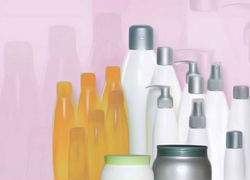Analytics, EU – Baltic States, Internet, Markets and Companies, Retail, Technology
International Internet Magazine. Baltic States news & analytics
Wednesday, 24.04.2024, 11:54
Euromonitor: direct Selling outperforms internet sales in Baltics
 Print version
Print version |
|---|
According to Euromonitor International research, internet sales of Beauty and Personal Care products accounted for 1%, 2% and 1% in 2010 in Lithuania, Latvia and Estonia, respectively. Meanwhile, direct sellers continued to hold significant shares accounting to 17%, 23% and 14% of total Beauty and Personal Care product sales. While internet sales are expanding dynamically in the majority of FMCG (Fast Moving Consumer Goods) markets, Beauty and Personal Care is among the industries least affected by this new distribution trend, thanks to the popularity of purchasing cosmetics and toiletries from well-established and reputable direct sellers, specialized in Beauty and Personal Care market.
The main reason why internet retailing in Beauty and Personal Care market shows a relatively slow development and faces tough competition from direct sellers in the Baltic States is the basic consumers’ need to touch, smell and feel the products before purchasing them. Unfortunately, internet retailing cannot provide this opportunity.
Euromonitor International forecasts that direct selling is not likely to lose its dominant position to internet retailing in the coming five years period. According to Euromonitor International estimations, in 2015 direct selling versus internet retailing will hold the shares of 17% and 2% in Lithuania, 25% and 3% in Latvia, and 14% and 2% in Estonia of total Beauty and Personal Care market sales. Sales via internet are not likely to reach direct selling level by 2015 mainly due to good price and quality ratio provided by direct sellers, constant new product development, as well as reputable company names achieved by direct selling leaders.
Direct selling is the marketing of consumer goods and services directly to consumers on a person-to-person basis, generally in their homes or the homes of others, at their workplace and other places away from permanent retail locations.








 «The Baltic Course» Is Sold and Stays in Business!
«The Baltic Course» Is Sold and Stays in Business!

